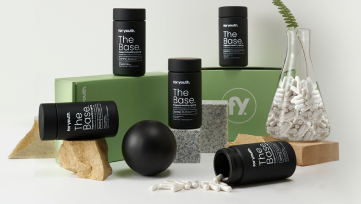Quercetin for Male Fertility: Supporting Reproductive Health


 Shop our Quercetin
Shop our Quercetin 
Male fertility is a complex issue influenced by various factors, including diet, lifestyle, and environmental exposures. Quercetin, a naturally occurring flavonoid found in many fruits and vegetables, has emerged as a promising agent in supporting reproductive health. This powerful antioxidant offers potential benefits for sperm quality, hormonal balance, and overall fertility. As research continues to uncover the mechanisms behind quercetin’s positive effects on male reproductive function, it raises intriguing questions about how dietary choices and targeted supplementation might play an essential role in optimizing fertility outcomes for men facing reproductive challenges.
Understanding the multifaceted benefits of quercetin extends beyond its impact on male fertility. Current studies delve into the role of quercetin in enhancing immune system efficacy, possibly offering a shield against various illnesses. Moreover, its potential for safeguarding eye health and supporting cognitive functions, including improved memory and focus, are areas of active exploration. Prospective users considering quercetin supplementation are advised to examine the science that suggests optimal daily intake, particularly its reputed efficacy in mitigating inflammation and its emerging role in cardiovascular health. Essential for vegans and vegetarians, quercetin’s versatility showcases it as a cornerstone in the future of nutraceuticals, with growing evidence supporting its use in areas as diverse as cancer prevention, allergy relief, and senior health management. Nonetheless, individuals, including those exploring its utility during pregnancy, should seek professional advice to ensure safety and efficacy.
Understanding Quercetin
Quercetin, a potent flavonoid antioxidant found in various fruits and vegetables, has gained attention for its potential benefits in supporting male reproductive health. This naturally occurring compound belongs to a class of plant pigments called flavonoids.
Quercetin is known for its anti-inflammatory and antioxidant properties, which may help protect sperm cells from oxidative stress and damage. Common sources include apples, onions, and berries.
By signing up, you consent to receive For Youth emails
Get The Latest On Longevity Delivered To Your Inbox.
Antioxidant Properties and Fertility
The antioxidant properties of flavonoids, particularly quercetin, play a crucial role in protecting reproductive cells from oxidative damage and supporting overall fertility.
Quercetin neutralizes harmful free radicals, which can impair sperm function and DNA integrity.
Hormone Regulation and Quercetin

 Shop our Quercetin
Shop our Quercetin 
Beyond its antioxidant effects, quercetin also influences hormonal balance in males, which can greatly impact fertility outcomes.
Research suggests that quercetin may modulate testosterone levels and regulate estrogen production. It has been shown to inhibit aromatase, the enzyme responsible for converting testosterone to estrogen.
This action potentially leads to increased testosterone availability, which is vital for sperm production and overall male reproductive health.
Dosage and Supplementation Guidelines
Determining appropriate quercetin dosage and supplementation guidelines is essential for men seeking to optimize their fertility through this natural compound.
While research is ongoing, typical doses range from 500 to 1000 mg daily. It’s recommended to split this into two or three doses throughout the day for better absorption.
Always consult a healthcare professional before starting any supplement regimen, especially if you have pre-existing conditions or are taking medications.
What You Need To Know About For Youth
For Youth demystifies the science of longevity, making it accessible to everyone. With the view of considering aging as a “disease” that can be cured, we aim to help individuals slow down or even reverse aging at a cellular level, ultimately leading to a healthier and longer life.
Aging is the underlying cause of various health issues, ranging from minor problems like wrinkles to severe diseases like Alzheimer’s or cancer. By slowing down the aging process, one can significantly improve their overall health and well-being.
For Youth offers a biological age test and a range of science-backed, lab-tested, and carefully sourced supplements, such as NMN or resveratrol, to help you monitor and counteract the effects of aging.
Quercetin by For Youth
⇒ The Zombie – Quercetin Singapore

 Shop our Quercetin
Shop our Quercetin 
Description:
Quercetin is a scientifically-backed, plant-based anti-aging supplement. The Quercetin Phytosome™ acts as both an antioxidant and senolytic, effectively targeting and eliminating senescent or “zombie” cells to promote a longer, healthier life. By removing these harmful cells, quercetin helps to reduce inflammation, alleviate allergy symptoms, strengthen the immune system, improve athletic performance, and address a variety of age-related issues.

While some companies may ambiguously mention “made in XXX”, they may not provide full disclosure about the chain of production. Unlike these companies, For Youth is committed to complete transparency and shares the details of our supply chain at every step of the process.
Sourced from Italy
Indena, the firm behind Quercetin Phytosome™, is a company with over a century’s worth of history based in Italy, specializing in herbal ingredients. They innovated the Phytosome™ technology to markedly escalate the bioavailability of ingredients typically not effectively absorbed by our bodies.
Produced in Italy
The flowering extract of the Sophora japonica or Japanese pagoda tree is refined into Quercetin Phytosome™ in Italy. The state-of-the-art Phytosome™ technology develops a free-flow matrix preventing quercetin from clumping and heightening its absorption rate dramatically. This innovation leads to an extraordinary 20-fold improvement in absorption relative to standard quercetin.
Encapsulated in France
Our Quercetin product is encapsulated within vegetarian capsules at our affiliate facilities located in France.
Bottled in Singapore
The Quercetin capsules are transported in large quantities to our Singapore location. Upon arrival, a third-party laboratory tests the capsules, which are then bottled by our partner at their pharmaceutical facilities in Singapore.








